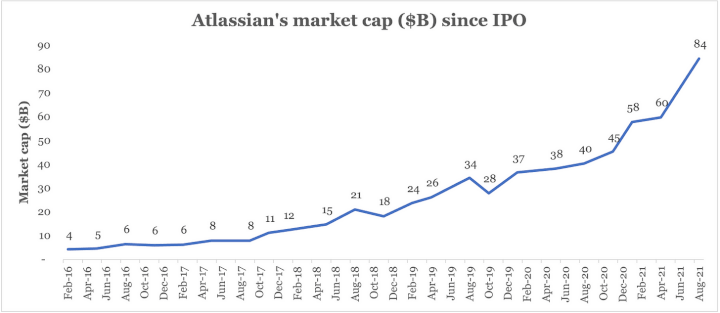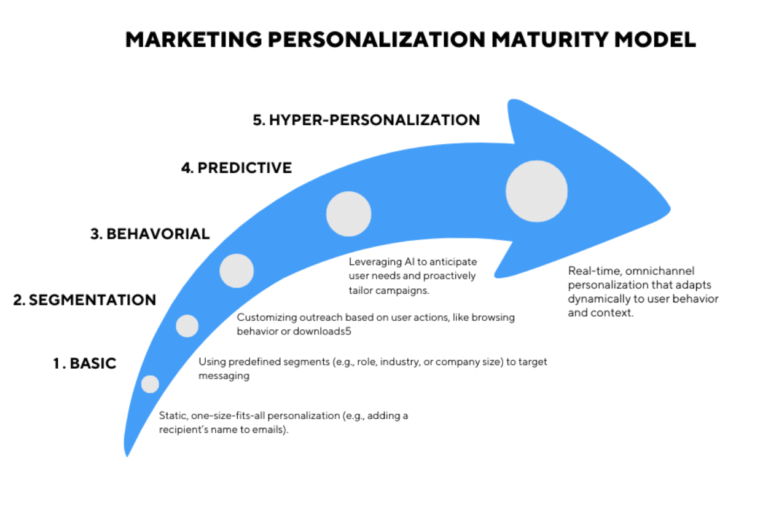Ancient philosophers knew that the “only constant in life is change.” Leaders in our industry face unprecedented market challenges and many other obstacles to achieve our sustainable growth objectives. We need to not only be resilient in the face of these obstacles, but also build teams that can rapidly adapt to the dymanics of the market. The best leadership teams not only respond quickly, they “change before they have to” as famously advised by Jack Welch.
This article is a follow-up to our post Unlocking the Power of High Performing Teams, which explores strategies for identifying and developing leaders who are not only equipped to lead through change but also capable of fostering a company culture that prioritizes adaptability and resilience, ensuring long-term success in the competitive world of SaaS.
The Importance of Leadership in Shaping SaaS Success
Leadership teams shape a SaaS business’s trajectory through their ability to inspire, strategize, and execute effectively. Great leaders catalyze transformative change, ultimately determining a company’s success or failure.[1] Moreover, their behaviors directly influence organizational culture – a critical factor in the SaaS domain. [2]
Building a strong leadership team in the SaaS industry today faces complex challenges. Rapid technological innovations require leaders to adapt and foresee future trends continually. Globalization and remote work demand the management of diverse teams across various cultures and time zones, necessitating advanced communication and cultural skills. As competition intensifies, attracting and retaining top talent while fostering innovation becomes crucial. Changing workforce expectations and the growing importance of soft skills like emotional intelligence and resilience add to the complexity. Furthermore, increasing regulatory demands and economic uncertainties necessitate leaders adept in compliance, cybersecurity, and crisis management, compounding the difficulties of forming and maintaining effective leadership teams.
Essential Leadership Traits: Adaptability and Resilience
In this dynamic and uncertain environment, adaptability and resilience become the fundamental characteristics of successful leaders. Adaptability enables leaders to anticipate and respond proactively to change, pivoting strategies and processes. Resilience is the capacity to persevere through adversity, bouncing back from setbacks with renewed determination. Research consistently links these traits to positive business outcomes like innovation, customer satisfaction, and financial performance – all vital for SaaS companies. [3}[4][5]
The SaaS industry faces myriad challenges necessitating adaptable and resilient leadership. As noted in a McKinsey report, technological advancements like AI and machine learning disrupt traditional business models, forcing rapid innovation. [6] According to a Gartner analysis, competitive pressures intensify as new entrants and established players vie for market share. [7] These challenges underscore SaaS companies’ need to cultivate agility and resilience at all levels, especially within leadership ranks.
Adaptable and resilient leaders are proactive, not merely reactive, anticipating challenges and innovating solutions to prevent crises and mitigate the impacts of unforeseen issues. These qualities also sustain employee morale and retention, as such leaders model coping strategies and flexibility, creating a supportive and dynamic work culture. Furthermore, adaptability and resilience enhance decision-making abilities under pressure, enabling leaders to make quick, informed decisions by accurately assessing risks and adapting strategies. These traits also foster a learning-oriented culture that views mistakes as opportunities for growth, leading to continuous improvement and a strong foundation for future challenges.
Leaders prioritizing trust, collaboration, and psychological safety create environments conducive to innovation, resilience, and long-term success, as
Simon Sinek in “Leaders Eat Last.”
Atlassian: A Case Study in Adaptability
One well-documented example that exemplifies the importance of adaptability and resilience in the SaaS industry is Atlassian, the company behind popular collaboration tools like Jira and Trello. In the early 2010s, Atlassian’s leadership recognized that to sustain growth, they needed to expand beyond their core developer user base for Jira. As co-founder Scott Farquhar explained, “We had to adjust our strategy to capture a much broader market.”
Atlassian’s leadership team demonstrated remarkable adaptability, pivoting the company’s strategy and acquiring Trello in 2017 for $425 million. They launched new products like Confluence and Jira Service Desk, requiring teams to embrace new methodologies, processes, and a culture supporting a diverse product portfolio. This transformation tested Atlassian’s resilience, but as Farquhar noted, “We fostered a culture of experimentation, encouraging teams to learn from failures and pivot strategies as needed.” The results have been impressive – Atlassian now serves over 200,000 customers across industries, with revenue reaching $3.9 billion in fiscal 2023, exemplifying how adaptability and resilience future-proofed their business. [11]

Recruiting Resilient and Adaptable Leaders
Identifying and recruiting adaptable and resilient leaders can be challenging, particularly during the hiring stages, where direct demonstrations of these traits are limited to interviews and references. Here are several effective strategies and techniques to help identify these crucial traits:
- Structured Behavioral Interviewing: Utilize behavioral questions and situational scenarios to assess how candidates have handled past challenges and hypothetical situations that test their problem-solving skills, flexibility, and stress management.
- Psychometric Assessments: Employ personality and emotional intelligence tests to gauge a candidate’s propensity for adaptability and resilience, providing insights into how they perceive and respond to challenges.
- Reference and Background Checks: Conduct targeted reference questions and possibly 360-degree feedback to gather comprehensive views on the candidate’s past behaviors related to adaptability and resilience.
- Real-Time Simulations: Implement role plays, simulations, and group exercises that mimic job-specific scenarios to observe candidates’ real-time capabilities in managing stress and leading through change.
- Continuous Monitoring During Probation: Evaluate new leaders during their probation period to see how they manage real business challenges and adapt to the company culture.
Utilizing these strategies will not only aid in assessing adaptability and resilience during the hiring process but also contribute to building a more robust and effective leadership team.
We fostered a culture of experimentation, encouraging teams to learn from failures and pivot strategies as needed.
Atlassian Co-Founder, Scott Farquhar
Developing and Cultivating Leadership Traits
While recruiting adaptable and resilient leaders is crucial, ongoing development initiatives are essential for enhancing these traits within existing teams. Immersive, experiential learning programs and job rotations can expose leaders to diverse challenges and perspectives, building their capacity for agility and perseverance. A number of programmatic actions can also be taken. [10]
- Establish a formal mentorship program: Pair experienced leaders with high-potential individuals to share insights on navigating turbulence and change. Use mentoring relationships to foster knowledge transfer and model resilient and adaptable mindsets.
- Cultivate a culture of psychological safety and experimentation: Encourage teams to challenge assumptions, propose new ideas, and learn from failures without fear of repercussions. Celebrate and reward instances of successful adaptation and resilience.
- Empower cross-functional and diverse teams: Bring together individuals with varied perspectives, backgrounds, and expertise to tackle complex challenges. Foster open communication and shared purpose within these teams to enhance collective adaptability. See our post: The Power of Cross-Functional Teams.
- Lead by example and storytelling: Ensure senior leaders model adaptability and resilience through their actions and decision-making processes. Share stories of how the organization or leaders have successfully navigated change and adversity.
- Encourage personal growth and well-being initiatives: Offer resources and programs that support leaders’ mental and physical health, as resilience stems from personal well-being. Promote work-life balance and stress management strategies.
Beyond individual leaders, cultivating collective adaptability and resilience within teams is equally important. Diverse perspectives, open communication, and shared purpose foster these qualities. Leaders should empower cross-functional teams to challenge assumptions, propose new ideas, and iterate based on customer feedback – nurturing environments of continuous adaptation and learning. [12]
Conclusion
Never before has adaptability and resilience been so essential in achieving long-term success. Leaders possessing these qualities can navigate turbulence, foster cultures of innovation and perseverance, and steer their organizations toward sustained growth.
For CEOs and investors, prioritizing recruiting and developing adaptable, resilient leaders should be a strategic imperative. Implement behavioral-based interviews, simulations, and immersive training programs to identify and cultivate these traits. Empower cross-functional teams to embrace experimentation, learning, and continuous adaptation. By enhancing these practices, you position your organization to thrive amidst disruption and future-proof your business in an ever-changing landscape.
Sources:
- Jim Collins, “Good to Great” –
- Simon Sinek, “Leaders Eat Last” –
- Ronald Heifetz, “The Adaptive Leader” – May 2009
- Harvard Business Review, “The Leader as Coach” – Nov 2019
- Journal of Applied Psychology, “Personal Resources and Work Engagement” – 2010
- Havard Business Review, “The Rebirth of Software as a Service” – May 2023
- Gartner, “Competitive Landscape: Software as a Service, Worldwide” – June 2023
- Geoff Smart & Randy Street, “Who” – Sep 2008
- Press Release, Jan 2017, Atlassian, Atlassian Trello Acquisition
- Deloitte Insights, “Human Capital Trends” – 2024
- Michael D. Watkins in Harvard Business Review, “The First 90 Days” – May 2013
- Jon R. Katzenbach & Douglas K. Smith, “The Wisdom of Teams” – 1993










